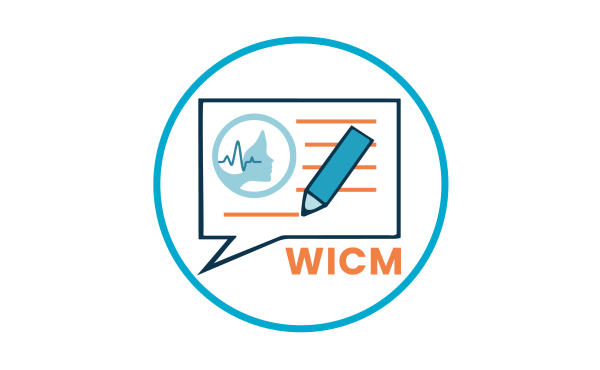WICM: Inspiring Careers in Critical Care – Dr Deborah Owen
Introduction from the interviewer:
My time working in Intensive Care as an ACCS-EM trainee was one of the most influential periods of my career so far. I worked with a truly incredible team. During the lockdown period, I was able to reflect on my time in Intensive Care and my role as a woman in medicine. As part of this, I approached eight women in the Intensive Care team to share their inspiration and their perspective. It was a privilege to hear their stories. Thank you to WICM for this platform and to the women you will read about, for their time and their words.
Dr Jasmine Medhora

Intensive Care Medicine Registrar.
What was your path to becoming an ICM trainee?
After graduating from Aberdeen Medical School, I did my Foundation training in Newham and Harlow and then went on to do ACCS-Emergency Medicine training in Southend-on-Sea. I did consider dual training with Intensive Care at this point but decided instead to take a clinical fellow post at the Royal London where I got more experience in Intensive Care. I also did a clinical fellow post in Intensive Care in Aberdeen before starting my ST3 ICM training post. Looking back, there was a time when I had wanted to be a pathologist and I actually got a run-through job in Pathology, but I turned it down to do Emergency Medicine. So, there is a parallel universe somewhere, where I am a pathologist living in Kent!
Do you think you got enough exposure to ICM as a medical student and foundation doctor?
As an undergraduate, I don’t remember any placements on Intensive Care. I recall some anaesthetics exposure but none in ICM. None of my foundation jobs were in Intensive Care. So ACCS training was my first exposure to ICM and that is when I got to appreciate the variety and depth of the specialty.
What do you enjoy about ICM?
I enjoy the challenge of trying to get a patient stable in the ward setting. Usually, you get asked to review patients that are in extremis and the doctors on the ward know what is wrong with the patient, but we need to work out whether the patient can be moved to Intensive Care and what can be offered. I realise how spoilt I am in ITU with all the equipment and monitoring available!
What challenges are you facing as you transition from CDF to ST3 in ICM?
There are new challenges with each shift. I finished my clinical fellow job and became an ICM registrar overnight which was daunting but exciting. My clinical fellow posts have given me a good foundation to build on but being a registrar is very different. The registrar role involves more thinking about critical care outreach – thinking about managing complex patients on wards outside of ITU where I do not necessarily have ITU nursing staff or monitoring. I have to think about which treatments can be given in these settings and if it is appropriate to transfer patients and how to do this.
I think you can become too comfortable in the ‘SHO’ role. Moving to ST3 has been a big step up but I have learned so much. I was wary about being a non-anaesthetist initially but actually I bring another set of skills and experience. Plus, I work in a very supportive department which helps.
Your department has a large number of female trainees – does this make for a different work dynamic compared to other teams you have worked in?
Yes! There is a good representation of female trainees in Aberdeen. Also, thinking back to Royal London there was a good number of female trainees too. I think there is an increase in the number of women in ICM compared to a few years ago. I think this makes for a richer training environment. Just generally having people from different backgrounds on the team is always a good thing and makes for a more experienced team.
How do you think we can encourage more women into ICM?
Having good female role models helps. I have met some inspirational female consultants who are great role models and I also want to be a good role model! I think the work done by Women in ICM has also made a big difference in changing perceptions of the specialty
The historic view of ICM is that it is exam-heavy and a high-stress environment with a large out-of-hours commitment. In fact, I found I got a varied response from people when I said I was a single specialty ICM trainee; from absolute encouragement, to the response that it would be a difficult, emotionally taxing career choice. I think, like everything in life, there needs to be a balance.
I vehemently disagree that out of hospital specialties such as General Practice are de facto better for women. I think the impression of ICM is changing, especially as work-life balance has improved and less than full time training is more accessible.
What reflections from the pandemic situation will you take forward with you?
On a human level – spend time with the ones you love.
For Intensive Care – I learned a lot about respiratory failure and its management. For example, it is easier to consider proning a patient. Previously, I found it was something that was mentioned as a treatment strategy, but there was always a barrier to the action. Now it is a more acceptable approach and we have more experience of caring for proned patients. Also, when it comes to planning for major expansion and rapidly increasing ITU capacity – we are better at this now.
Related Content
Written by: Jasmine Medhora & Roxy Bloomfield
Written by: Jasmine Medhora & Laura Allan

